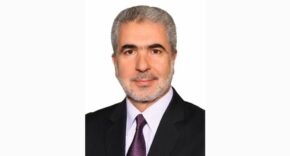Ambulance call-outs and hospital visits have been drastically reduced with the help of NHS doctors and nurses who are using Skype to help nursing home staff, wardens and carers to treat and help elderly people in their homes.
8000 Skype calls are received by the on-call Skype NHS team annually, and NHS Skype consultations have already prevented 3000 unnecessary A&E visits, as well as 2000 GP visits in the last 2 years alone. Ambulance call-outs have been drastically reduced, not only avoiding the distress of an emergency trip to the hospital, but also freeing up resources for other emergency situations.
£1.3m and hundreds of hours have been freed up by using this technology as part of the NHS Long Term Plan in Tameside, in the Greater Manchester. The NHS also plan to implement the programme of integrated services across the UK. The technology is helping to improve the work load of NHS staff, and is also providing quicker and more efficient help to patients with urgent needs.
The NHS Long Term Plan commits to using the scheme to provide improved, more convenient care to residents at home and providing quality support to health and social services using the digital technology.
Prof Stephen Powis, NHS England Medical Director, said: “Putting every person’s individual care needs at the centre of joined-up services, supported by smart technology, is the heart of our Long Term Plan for the NHS.
“What matters most to every patient and their family is that they get the right treatment, at the right time, so integrating services – across communities and between councils, carers and hospitals – is not only good for the people we care for but a more efficient use of NHS resources.”
Peter Grace, a registered nurse who works taking calls in the digital centre, said: “By setting up a direct link between services and the doctors and nurses at the hospital’s digital health team, we were able to offer guidance, advice and reassurance as well as being able to see the patient on Skype.
“Extending this to housing wardens, working with the council, has taken the project to the next level as now we can also help with issues in sheltered accommodation such as falls.
Working together with local groups, carers and patients, and also utilizing the last 3 years NHS and local council budget, Tameside as part of the Greater Manchester’s health and care approach, are developing solutions to health care issues more effectively.
14 areas across the country have Integrated Care Systems (ICS) which marry local government systems and NHS, simplifying systems between councils, GPs and hospitals.
Jon Rouse, Chief Officer of the Greater Manchester Health and Social Care Partnership, said: “Tameside’s pioneering work is an example of what happens when you bring together teams from the NHS, local authorities and care home providers and give them the freedom and resources to develop new ways of doing things.
“Greater Manchester has a long history of collaboration between the 10 council areas. It is that focus on working across organisational boundaries to best serve the needs of ordinary people that will help them to live independently as long as possible and receive care when they need it.”
Article Source:https://www.england.nhs.uk/2019/05/nhs-skype-doctors-and-nurses-prevent-thousands-of-avoidable-hospital-trips/












